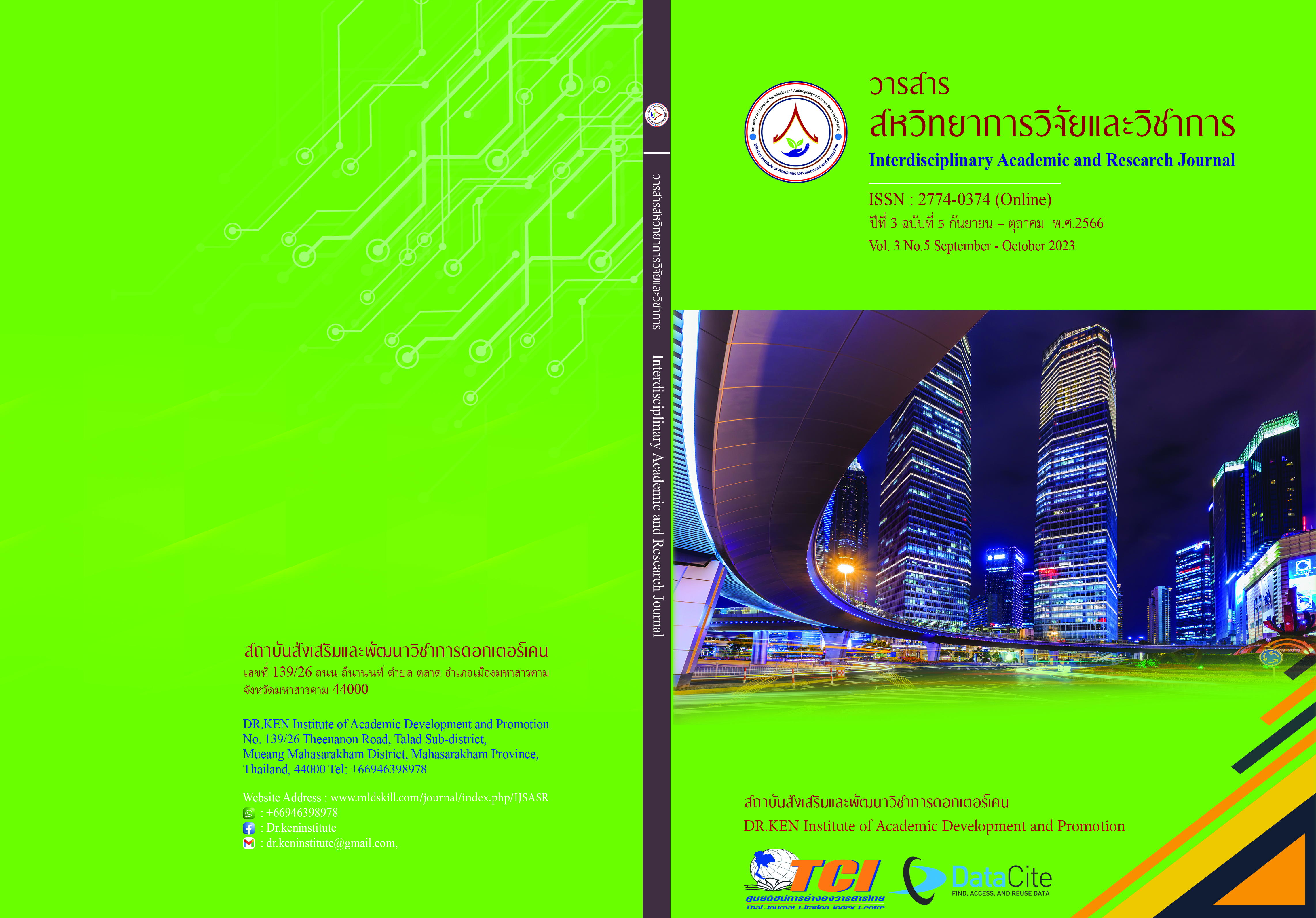An Analysis of Higher Education Entrepreneurship Programs in Thailand: Current Conditions and Future Challenges
DOI:
https://doi.org/10.14456/iarj.2023.242Keywords:
Entrepreneurship Course; , Current Condition; , ChallengeAbstract
The labor market is an important catalyst for the development of entrepreneurship courses. The author has studied entrepreneurship programs at 9 universities in Thailand, comparing the similarities and differences among the courses. This study also takes into consideration the socio-economic conditions in Thailand at present and future trends. As a result, three challenges for future entrepreneurship programs at the high-education level in Thailand have been identified: (1) the study model of online learning in conjunction with classroom teaching is required, (2) the course management should recognize the value of the degree, and (3) efficiency of start-up space.
References
วิธไท สันติประภพ. (2562). การเตรียมพร้อม "คนไทย" สำหรับโลกยุคใหม่. วารสารเศรษฐกิจและสังคม. 56 (2), 5-21.
สถาบันวิจัยเศรษฐกิจป๋วย อึ๊งภากรณ์. (2564). โครงสร้างเศรษฐกิจสังคมไทย: ความเปราะบางท่ามกลางความเปลี่ยนแปลง. aBRIDGED Maqking Research Accessible. Retrieved 10 December 2021 from: https://www.pier.or.th/abridged/2021/16/
สภาพัฒนาเศรษฐกิจและสังคมแห่งชาติ. (2562). Lifelong Learning สู่การขับเคลื่อนเศรษฐกิจยุคใหม่. Retrieved 18 November 2019. https://oer.learn.in.th/search_detail/result/159610
สำนักงานสถิติแห่งชาติ. (2564). สรุปผลเบื้องต้นการสำรวจภาวะเศรษฐกิจและสังคมของครัวเรือนในช่วง 6 เดือนแรกของปี 2564. Retrieved 10 December 2021 from: http://www.nso.go.th/sites/2014/Pages/
Adebayo, O., & Kolawole, J.A. (2013). The historical background of entrepreneurial development in Nigeria: Its gains, shortcomings and needful. Journal of Emerging Trends in Economics and Management Sciences, 4(5), 493-500.
Campos, F., Frese, M., Goldstein, M., Iacovone, L., Johnson, H.C., McKenzie, D., & Mensmann, M. (2017). Teaching personal initiative beats traditional training in boosting small businesses in West Africa. Science, 357 (6357), 1287-1290.
De Carolis, D. M., & Litzky, B. E. (2019). Entrepreneurship as a Science of the Artificial: Toward a Constructivist Understanding of Entrepreneurial Opportunities. Journal of Business Venturing Insights, 12, e00135.
Dirk, D., Benson, H., & Bruce, M. (2013). The roles of learning orientation and passion for work in the formation of entrepreneurial intention. International Small Business Journal, 31(6), 652-676.
Dwyer, C.J. (2017). The state of contingent workforce management 2017-2018: the convergence of talent, technology, and the future of work. Retrieved, March 15, 2019 from: www.fieldglass.com/resources/reports/state-of-contingent-workforce-management-2017-2018-talent-technology-future-of-work.
Gafar, M., Kasim, R. & Martin, D. (2013). Development of FM entrepreneurial assessment model to examine the effect of entrepreneurship education on real estate management students. The 2nd International Conference on Technology Management, Business and Entrepreneurship, Mahkota Hotel, Melaka, Malaysia.
Grant, A. (2018). Entrepreneurship major academic discipline for the business education curriculum for the 21st century. In Educating entrepreneurs for wealth creation (pp. 28-37). Routledge.
Grégoire, D., & Béchard, J.-P. (2006). Description of four pedagogical innovations in entrepreneurship for higher education. In Cahier de Recherche # 2006-06. Montréal, CA: Rogers-J.A.-Bombardier Chair of Entrepreneurship, HEC Montréal.
Harfst, K.L. (2010). The evolution and implications of entrepreneurship curriculum at universities. Online Journal for Workforce Education and Development, 1(3), 1-18. https://opensiuc.lib.siu.edu/ojwed/vol1/iss3/3
Korte, R., Smith, K.A. and Li, C.Q. (2018). The role of empathy in entrepreneurship: a core competency of the entrepreneurial mindset. Advances in Engineering Education, 7 (1), 1-10.
Organization for Economic Cooperation and Development (OECD). (2010). Assessment of higher education learning outcomes 2010-2011. Organization for Economic Cooperation and Development (OECD).
Secundo, G., Ndou, V., & Del Vecchio, P. (2016). Challenges for instilling an entrepreneurial mindset in scientists and engineers: what works in European universities? International Journal of Innovation and Technology Management, 13 (5), 1640012-1-1640012-23.
Sherman, H., Shuart, J., & Weinstein, L. (2007). From the editors. New England Journal of Entrepreneurship, 10 (2), 5-6.
Yamakawa, Y., McKone-Sweet, K., Hunt, J., & Greenberg, D. (2016). Expanding the focus of entrepreneurship education: a pedagogy for teaching the entrepreneurial method. Journal of Business and Entrepreneurship, 27 (2), 19-46.
Downloads
Published
How to Cite
Issue
Section
License
Copyright (c) 2023 Qiuxue Luo, Renyuan Nong, Mayuree Suacamram

This work is licensed under a Creative Commons Attribution-NonCommercial-NoDerivatives 4.0 International License.
Copyright on any article in the Interdisciplinary Academic and Research Journal is retained by the author(s) under the under the Creative Commons Attribution-NonCommercial-NoDerivatives 4.0 International License. Permission to use text, content, images, etc. of publication. Any user to read, download, copy, distribute, print, search, or link to the full texts of articles, crawl them for indexing, pass them as data to software, or use them for any other lawful purpose. But do not use it for commercial use or with the intent to benefit any business.
















.png)


